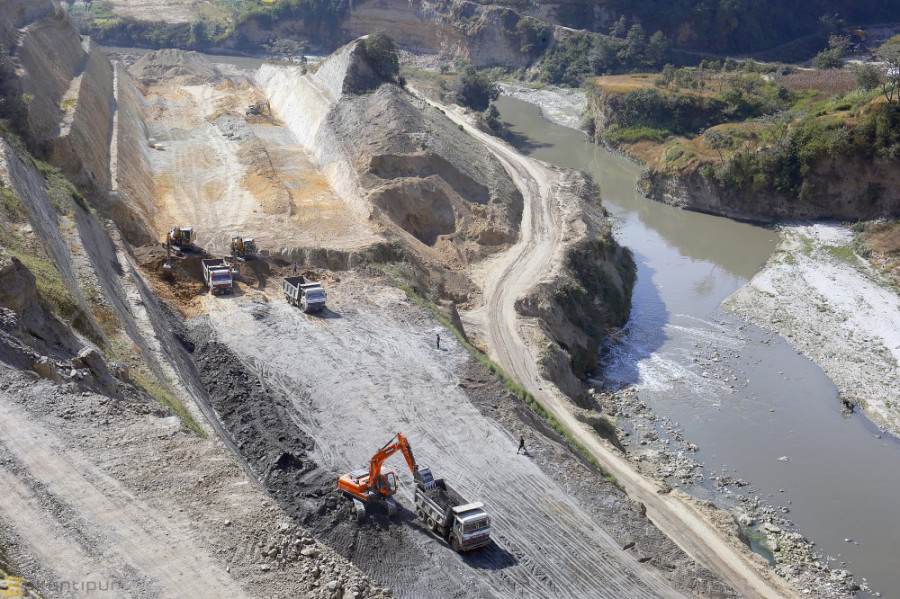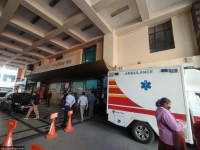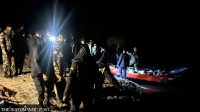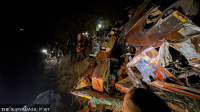National
Kathmandu-Tarai expressway to cost Rs213 billion
The estimated cost of the Kathmandu-Tarai expressway stands at a whopping Rs213 billion, according to the final Detailed Project Report prepared by Korea-based Soosung Engineering and Consulting.
Binod Ghimire
The estimated cost of the Kathmandu-Tarai expressway stands at a whopping Rs213 billion, according to the final Detailed Project Report prepared by Korea-based Soosung Engineering and Consulting.
The cost is almost double the amount estimated by Infrastructure Leasing & Financial Services, and Indian consortium which was earlier building the project. The Indian consortium had projected the total cost to be around Rs112 billion ($1.12 billion) in case it was built on soft loan. The total cost would have escalated if it were to be built on commercial loan. This, however, did not include the cost for land acquisition, supervision and consulting charge.
Maj Gen Yogendra Khand, chief of the project, said Rs213 billion includes every cost, not just the direct construction expenses.
According to the Army, there will now be three tunnels, instead of one as had been envisioned earlier, which also jacked up the cost. As per the earlier plan, there will have been a 1.35-km tunnel along the expressway, but now the Detailed Project Report has envisioned three which will have a total length of 6km.
According to Khand, the distance of the expressway will be shortened by around 4 km to 72.5km from 76.2km due to three tunnels and the change in alignment.
The change in alignment, according to the Army, has not only shortened the road but also decreased the number of high bridges. It claims that having tunnels instead of bridges is safer in earthquake-prone countries like Nepal.
The expressway, a national pride project, which will drastically cut the travel time between Tarai and Kathmandu, however, has not been free from controversies.
Some Khokana locals and conservationists had earlier protested against the construction of the expressway.
Some of the residents of Khokana, a traditional Newar settlement in southern Lalitpur, have charged the government with assaulting their religious heritage, livelihood and indigenous identity by acquiring the land for a number of development projects, including the expressway.
Though around 50 percent of the people in Khokana have received compensation for their land, others are demanding that the entry point for the expressway be shifted to Farsidol from Khokana.
But with the Army already working on the project and the Detailed Project Report set to be implemented, the construction work is set to pick up pace.
The Kathmandu-Nijgadh expressway was first conceptualised in the mid-90s. But there had hardly been any development for the next 15 years. Then in 2013, the government again revived the project. Two years later, the Indian consortium, Infrastructure Leasing and Financial Services (IL&FS), won the bid for the project in February 2015.
In October of the same year, responding to a writ that the project was against national interests because it would burden the government financially in the long run, the Supreme Court ordered to halt the preparations to award the project to the Indian developer. A year later in December 2016, the government cancelled all agreements made with the Indian company to build the expressway. The government in the first week of May in 2017 decided to award the project to the Nepal Army. On May 28, 2017, then prime minister Pushpa Kamal Dahal laid the foundation stone for the project in Nijgadh.
But the Army did not have the Detailed Project Report, as the Indian company refused to hand over its report, saying the amount offered was too low. The security agency then decided to award the contract to prepare a new Detailed Project Report to the Korean company in September last year.
The Army, however, had already started construction works without the detailed project report. It now has around two and a half years to complete the project.
The Detailed Project Report envisions setting up toll plazas in three places Khokana, Budhune and Nijagh—these are also the exit points. The expressway, which will reduce the travel to the Capital from Nijgadh in Bara to less than an hour, will have 98 bridges in total which covers 11.17 km—over 15 percent of the total length of the roadway.
“The [detailed project] report will come into implementation after Cabinet’s approval,” Khand told the Post.




 22.9°C Kathmandu
22.9°C Kathmandu














